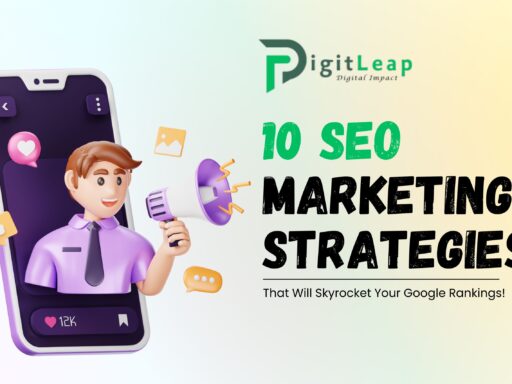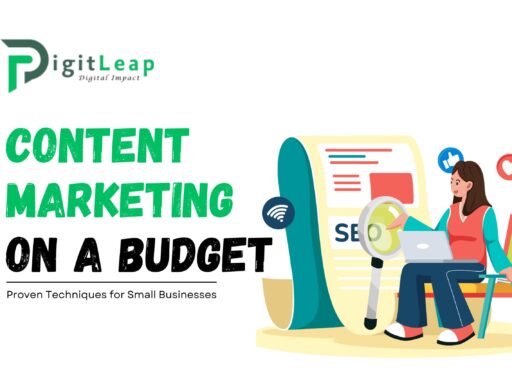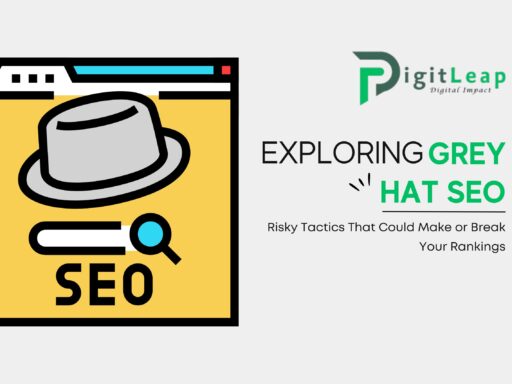10 Cost-Effective Digital Marketing Strategies for Small Businesses
Introduction
Digital marketing is crucial for small businesses looking to grow their online presence without spending a fortune. By using cost-effective strategies, you can reach your target audience and achieve your marketing goals on a budget. In this article, we’ll explore ten affordable digital marketing tactics that can help your small business thrive.
1. Leverage Social Media
Choose the Right Platforms
Focus on social media platforms where your target audience is most active. Whether it’s Facebook, Instagram, Twitter, or LinkedIn, each platform has unique features that can benefit your business.
Create Engaging Content
Share content that resonates with your audience. This could be posts about your products, behind-the-scenes looks at your business, or engaging polls and questions. Consistent and relevant content helps build a loyal following.
Use Social Media Scheduling Tools
Tools like Buffer or Hootsuite can help you plan and schedule your posts in advance. This saves time and ensures a consistent online presence.
2. Optimize Your Website for SEO
Perform Keyword Research
Identify keywords related to your business and incorporate them into your website content. Use tools like Google Keyword Planner to find relevant terms with good search volume.
Improve On-Page SEO
Ensure your website’s meta titles, descriptions, and headers are optimized with your chosen keywords. This helps search engines understand your content and improves your chances of ranking higher.
Create Quality Content
Regularly publish blog posts or articles that provide value to your audience. High-quality content can attract organic traffic and establish your business as an authority in your field.
3. Utilize Email Marketing
Build a Subscriber List
Collect email addresses from your website visitors and customers. Offer incentives like discounts or exclusive content to encourage sign-ups.
Send Targeted Campaigns
Use email marketing tools like Mailchimp or Sendinblue to create and send targeted campaigns. Segment your email list to send relevant offers and updates to different groups of subscribers.
Personalize Your Emails
Personalized emails are more likely to be opened and acted upon. Use your subscriber’s name and tailor content to their interests or past interactions with your business.
4. Engage in Content Marketing
Start a Blog
A blog is a great way to share your expertise and connect with your audience. Write about topics related to your industry, answer common questions, and provide useful tips.
Create Infographics
Infographics are visually appealing and can simplify complex information. Share them on your website and social media to engage your audience and increase shares.
Produce Videos
Video content can be highly engaging. Create short videos showcasing your products, sharing tips, or providing insights into your business. Post them on your website and social media channels.
5. Implement Local SEO
Claim Your Google My Business Listing
Ensure your business is listed on Google My Business. This helps you appear in local search results and provides essential information like your address, hours, and contact details.
Encourage Customer Reviews
Ask satisfied customers to leave positive reviews on your Google My Business listing and other review platforms. Positive reviews can improve your local search rankings and attract new customers.
6. Run Pay-Per-Click (PPC) Ads
Set a Budget
PPC advertising allows you to control how much you spend on ads. Start with a small budget and increase it based on the performance of your ads.
Target Your Ads
Use targeting options to reach your ideal audience. Platforms like Google Ads and Facebook Ads allow you to target based on location, interests, and demographics.
Monitor and Adjust
Regularly review your PPC campaigns to see what’s working and what isn’t. Make adjustments to optimize your ads and improve your return on investment.
7. Collaborate with Influencers
Identify Relevant Influencers
Find influencers in your industry who have a strong following and align with your brand values. Reach out to them for potential collaborations or sponsored posts.
Leverage Micro-Influencers
Micro-influencers have smaller but highly engaged audiences. They often have more affordable rates and can provide a more targeted reach.
8. Use Online Communities
Join Industry Forums and Groups
Participate in forums and online communities related to your industry. Share your expertise, answer questions, and subtly promote your business when relevant.
Engage in Social Media Groups
Join Facebook groups or LinkedIn communities where your target audience hangs out. Participate in discussions and offer valuable insights to build your reputation.
9. Offer Webinars and Workshops
Host Educational Webinars
Webinars are a great way to showcase your expertise and provide value to your audience. Promote your webinars through your website, social media, and email marketing.
Provide Free Workshops
Offer free workshops or training sessions to attract new customers and demonstrate your knowledge. This can help build trust and establish your business as an authority in your field.
10. Track Your Results
Use Analytics Tools
Monitor the performance of your digital marketing efforts using tools like Google Analytics. Track metrics such as website traffic, conversion rates, and social media engagement.
Adjust Your Strategies
Based on your analytics, adjust your strategies to improve performance. Focus on what’s working and refine or discontinue tactics that aren’t delivering results.
Conclusion
Effective digital marketing doesn’t have to be expensive. By leveraging cost-effective strategies like social media, SEO, email marketing, and content creation, small businesses can achieve impressive results on a budget. At DigitLeap, we specialize in helping businesses implement affordable digital marketing strategies that drive growth and enhance online visibility. Let us help you make the most of your marketing efforts and achieve your business goals.
FAQs
Q1. What are some cost-effective ways to market a small business?
Social media marketing, SEO, email marketing, and content creation are all cost-effective ways to market your small business.
Q2. How can I improve my local SEO?
Claim and optimize your Google My Business listing, encourage customer reviews, and use local keywords to improve your local SEO.
Q3. What is the benefit of using email marketing?
Email marketing allows you to connect directly with your audience, promote your products or services, and drive repeat business through targeted campaigns.
Q4. How do I choose the right social media platforms for my business?
Select platforms based on where your target audience is most active. Analyze your audience’s preferences and focus on platforms that align with your business goals.
Q5. How can I measure the success of my digital marketing efforts?
Use analytics tools to track key metrics such as website traffic, conversion rates, and social media engagement. Regularly review your performance and adjust your strategies accordingly.






